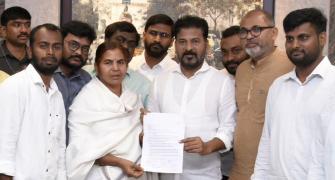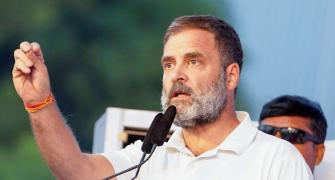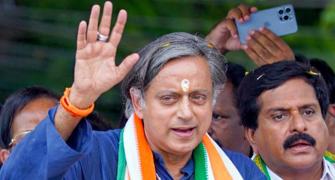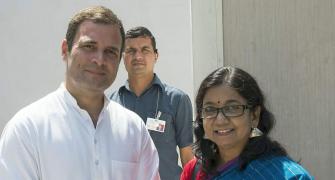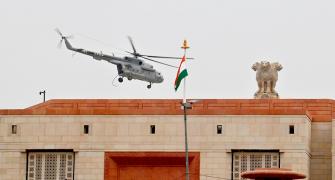Terming high cost of litigation as an 'entry barrier' for the poor, Prime Minister Manmohan Singh, on Wednesday, favoured that the justice delivery system in the country be made more affordable and accessible to the common man.
"High cost dispensing and securing justice is an entry barrier for the poor. Equality in law becomes an unattainable ideal because high cost prevents easy access to courts. Equality in law, hence, requires equal access to law," he said, launching the Rs 854 crore Project for Information and Communication Technology Enablement of Indian Judiciary in New Delhi.
Hailing Indian judiciary as 'an example of probity and fairness', Dr Singh, however, pointed out that delay in disposal of cases in courts was a major problem.
"This may be partly due to the high vacancy position at all levels of the judiciary. However, we must admit that there is a need to increase the speed of disposal of cases and reduce pendency. After all, justice delayed is justice denied," Singh said.
He lamented that there was also lack of availability of information about the status of individual cases by litigants. Singh requested the Judges and the Law Minister to think of ways of securing easier, faster and cheaper justice.
"A system that is simple, easy to understand, easy to access and inexpensive will go a long way in ensuring that noble intentions behind many of our laws, which were designed o address the needs of large sections of our population, are genuinely fulfilled," Dr Singh said, affirming his government's fullest support to the computerisation programme to enhance the productivity of the judicial system.
Maintaining that a stable and sound legal system dispensing effective justice was an essential pre-requisite for sustained economic growth, Dr Singh said it was the duty of the judiciary to protect the rights to freedom of speech and expression, freedom of religious practice and equality of opportunity.
"It is only then that the spirit of our citizens and confidence of society will be unleashed to embark upon bold enterprises, be it economic, intellectual or social," he added.
Dr Singh expressed confidence that the e-committee under the Chief Justice of India will enhance judicial productivity - both qualitatively and quantitatively - as also make justice delivery system affordable, accessible, cost effective, transparent and accountable.
Stating that similar objectives have been achieved in other parts of the world by the use of technology, he lamented that 'these benefits could not be fully exploited for the Indian judiciary so far'.
Dr Singh said under the Common Minimum Programme, the United Progressive Alliance government has pledged to give a fresh momentum to judicial reforms, as it affects the quality of life of every citizen.
In his keynote address, Chief Justice of India, R C Lahoti, drew the Dr Singh's attention to the need for launching a National Integrated Plan for Alternative Disputes Resolution System of Justice Administration,.
He also spoke about appointing a high power commission for examining the justice delivery system and making recommendations for administrative reforms therein, besides implementing the reports of Law Commission of India.
Law Minister H R Bhardwaj, IT and Communications Minister Dayanidhi Maran, Planning Commission Deputy Chairman M S Ahluwali and judges of the Supreme Court and the Delhi High Court were also present on the occasion.


